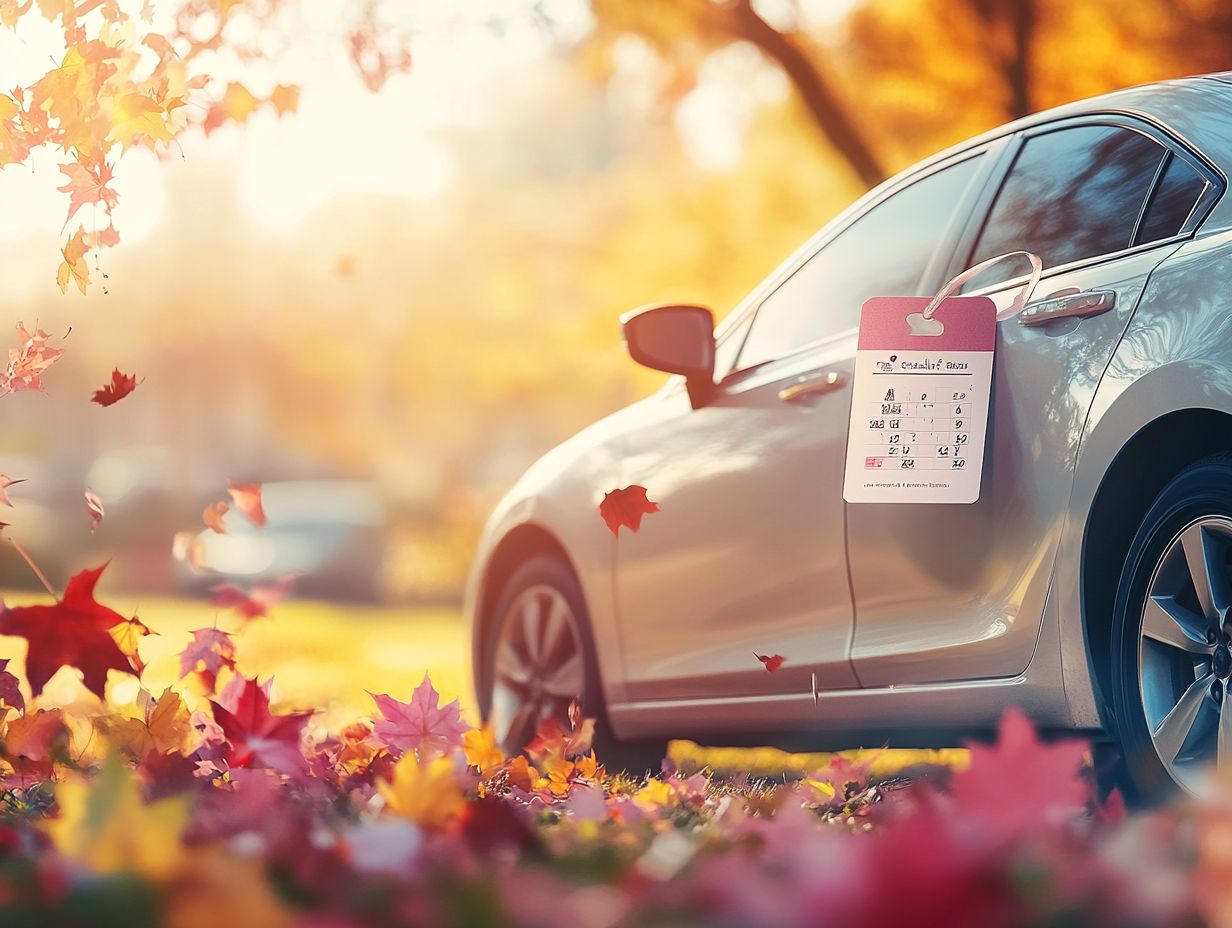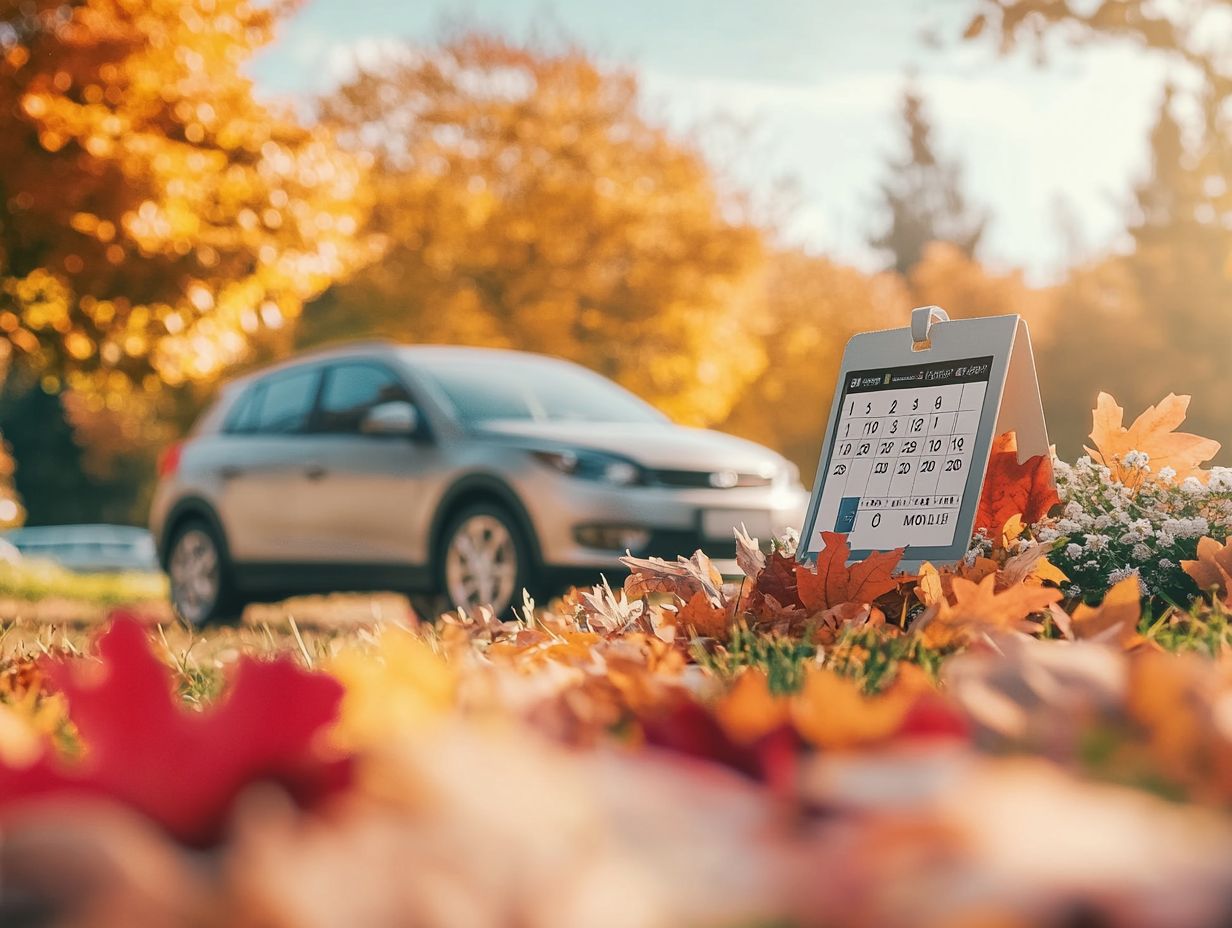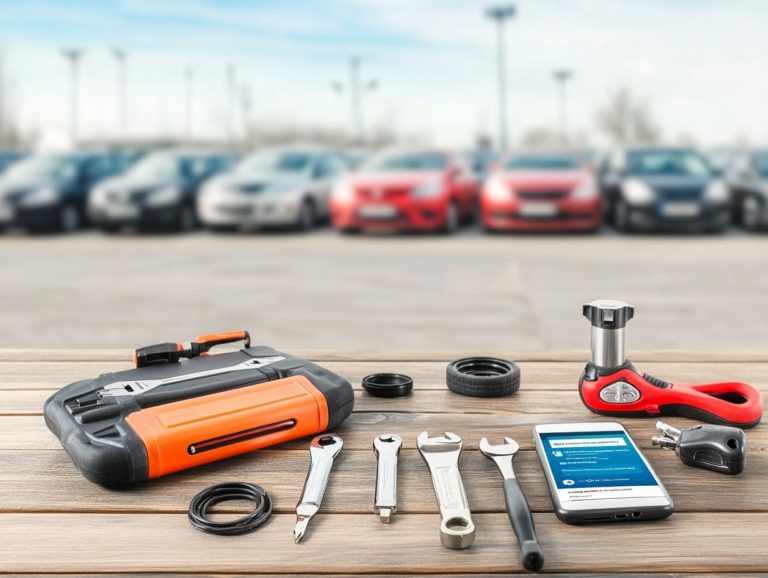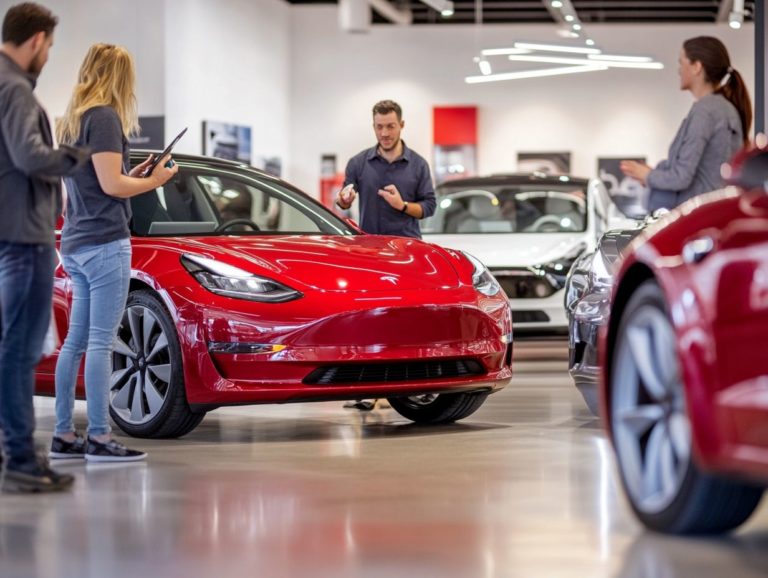The Best Times to Buy Used Cars
Buying a used car can be a smart financial move, allowing you to save money without sacrificing quality.
Navigating this market requires both knowledge and strategy. This article explores the benefits of choosing pre-owned vehicles, highlighting important factors to consider like price, condition, and mileage. You ll also learn the best times to buy, including seasonal trends and sales events.
You ll discover where to find the best deals, how to negotiate confidently, and practical tips for inspecting and test driving a used car. With the right approach, you can drive away with a fantastic deal on a reliable vehicle.
Contents
Key Takeaways:

Consider price, condition, and mileage when buying a used car. Additionally, timing your car purchase for better deals can help you take advantage of seasonal trends and sales events to get the best offers. Use online marketplaces and local dealerships to find great options.
Advantages of Buying Used Cars
Purchasing a used car offers many benefits. You can save significantly on the purchase price, enjoy a wider range of vehicle models, and often pay lower insurance rates compared to new cars.
Choosing a pre-owned vehicle in Florida makes car ownership more affordable, especially when considering the steep depreciation new cars face.
The variety of used vehicles available in Florida is impressive, from reliable sedans to sturdy SUVs that can handle the state’s diverse landscapes.
Trade-ins can enhance your buying experience by allowing previous owners to offset the cost of their next vehicle, making upgrades easier on your budget.
Vehicle history reports and warranties provide peace of mind, ensuring that your investment is sound and leading to a confident purchase overall.
Factors to Consider When Buying a Used Car
When contemplating the purchase of a used car, several key factors deserve your attention.
You should focus on price, condition, and mileage. Understanding these aspects is vital for navigating the used car market confidently, ensuring your investment aligns with your budget and needs.
Price, Condition, and Mileage

When considering a used car, focus on three main factors: price, condition, and mileage. These factors affect the car’s value and resale potential.
Watching price fluctuations driven by consumer demand can empower you to make informed choices. For instance, a competitively priced vehicle is likely to attract more buyers, increasing its market appeal especially if it s well-maintained.
The car’s condition is crucial; a vehicle in great shape will have a better resale price than one that shows wear and tear. Mileage is also important; lower mileage generally means less wear, which can lead to greater longevity and a more favorable resale price.
As consumer preferences shift towards fuel-efficient and eco-friendly models, these trends can impact pricing and demand. Staying informed about these changes is essential for making a smart investment.
Best Times to Buy Used Cars
Identifying the best time to buy a car can unlock significant discounts and exceptional deals on used cars.
Key moments often include major holidays like Memorial Day and Labor Day, tax season, and year-end when dealerships are eager to clear inventory to meet monthly sales goals.
Don’t miss out on these chances to grab fantastic deals!
Seasonal Trends and Sales Events
Seasonal trends in the used car market greatly impact pricing and inventory. Holiday sales, like Black Friday, attract more customers, offering better prices and exciting promotional offers.
This increased customer activity boosts competition among dealers, resulting in attractive discounts and financing options that might be hard to find during quieter months.
End-of-season promotions, like summer clearance events, present significant savings opportunities, encouraging you to explore a diverse range of models.
The festive atmosphere during these periods creates a palpable sense of urgency, urging you to act fast and grab limited-time offers, ultimately guiding your purchasing decisions in a favorable direction.
Where to Find the Best Deals on Used Cars

To discover the best deals on used cars, a strategic approach is essential. Engage both online marketplaces and local dealerships to expand your options.
Websites like Edmunds and iSeeCars are invaluable resources, allowing you to compare prices and features effortlessly. Local dealerships often offer exclusive promotions that lead to advantageous purchasing terms tailored just for you.
Online Marketplaces and Local Dealerships
When you’re on the hunt for used cars, online marketplaces provide an expansive inventory and competitive pricing. Local dealerships offer negotiation opportunities and a more personalized touch.
Online platforms are a treasure trove of options, allowing you to sift through numerous listings from various regions. This makes it easier to pinpoint specific makes and models that catch your eye. Many buyers appreciate browsing from home, enabling quick price comparisons and reading reviews without the pressure of a salesperson.
However, while the vast selection is enticing, it can also become overwhelming, potentially obscuring the true condition of the vehicles. Local dealerships focus on building relationships with customers, providing tailored advice and the chance to inspect vehicles up close.
The ability to negotiate face-to-face can sometimes secure you a better deal, even if prices are slightly higher than online.
Tips for Negotiating the Price of a Used Car
Mastering the art of negotiating the price of a used car unlocks better financing options and substantial savings for you.
By familiarizing yourself with local used car prices and current consumer demand, you position yourself for success.
A flexible negotiation strategy gives you the power to explore multiple offers, guiding you toward a deal that truly works in your favor.
How to Get the Best Deal

To secure the best deal on your used car, leverage seasonal trends and understand the tactics used by car dealerships, including the best times to buy a new car.
Be well-prepared for negotiations. Bringing in your old vehicle that you can exchange for credit towards your new car can bolster your position and significantly enhance your chances of favorable terms.
Research market values for specific models in advance. This knowledge allows you to engage in informed discussions about pricing.
Recognize when dealerships have slower sales periods for extra leverage, as they may be more willing to negotiate.
Having a clear understanding of your trade-in’s worth greatly elevates your bargaining power. This preparation showcases your commitment and knowledge, paving the way for a more advantageous agreement.
By combining these strategies, you will achieve a more satisfying purchasing experience.
Inspecting and Test Driving a Used Car
Inspecting and test driving a used car are essential steps that give you the power to assess the vehicle’s condition, performance, and overall fit for your needs.
Knowing what to look for makes all the difference in finding your perfect car! It helps you make a well-informed decision and steer clear of unexpected issues later on.
What to Look for and How to Evaluate
When evaluating a used car, inspect key components such as mileage, general state, and maintenance history. This helps you assess reliability and potential longevity.
A thorough evaluation can uncover hidden issues. This knowledge empowers you to make informed decisions.
Examine both the exterior and interior closely. Look for signs of wear, rust, or damage that could affect its looks and resale value.
Check the tires for even tread wear. This can indicate if the car s alignment is proper.
Inquire about the car’s accident history and service records. These details offer valuable insights into its past.
A test drive is crucial. It allows you to gauge the car s handling, engine performance, and braking responsiveness.






